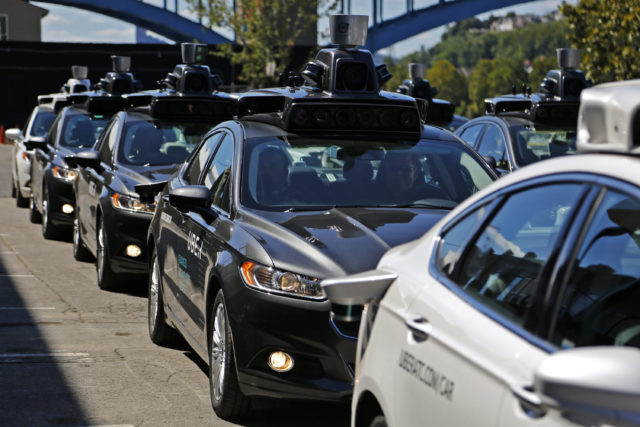By Megan Rule | Staff Writer
The U.S. Department of Transportation recently selected Texas as one of 10 sites to be testing grounds for connected and automated vehicle technologies, pushing the state into the limelight of research and development in transportation technology.
“This is very exciting for Texas,” said Dr. Christopher Poe, strategy lead connected to automated transportation at Texas A&M University. “This is putting Texas at the forefront of automated vehicle testing and research. Within the first year with the U.S. Department of Transportation, we expect the experts from the sites to talk about what automated vehicle testing means, what are the best practices and how can we define the consistent ways to test and represent all 50 states.”
According to the Center for Advanced Automotive Technology, automated vehicles are defined as being operated without “direct driver input to control the steering, acceleration, and braking,” and are designed so that it is unnecessary for the driver to constantly monitor the roadway.
Poe said there were 60 proposals to the U.S. Department of Transportation nationally requesting the opportunity to become a testing site for automated vehicles, but the Texas proposal was unique in a few ways. One unique aspect is that the proposal was statewide and partnered with three research entities: Texas A&M, University of Texas at Austin and a private nonprofit called Southwest Research Institute at San Antonio. Poe said there also is a partnership with 32 public agencies in Texas from seven real-world potential test sites in different cities. These cities are Dallas, Fort Worth, Arlington, Houston, Austin, San Antonio and El Paso.
“With five of the nation’s 15 fastest-growing cities in Texas and our population expected to potentially double by the year 2050, Texas must be a leader in the new technology that addresses transportation challenges,” Marc Williams, Texas Department of Transportation deputy executive director, said in a press release. “This partnership puts Texas at the forefront of automated vehicle technologies that likely will shape the future of transportation around the world.”
Both the booming Texas population and the booming Texas economy make it an ideal site for testing automated and connected vehicle technology, according to the press release. By testing in various environments and usage settings, technologies can be improved to be safer and more reliable. The press release also reports that the varied and unique testing sites the state of Texas offers will help the U.S. Department of Transportation develop guidelines for automated vehicle technologies.
The various testing sites include the following:
- Texas A&M
- University of Texas at Austin
- Southwest Research Institute
- Austin-Bergstrom International Airport and Riverside Drive corridor in Austin
- Texas Medical Center, Houston METRO HOV lanes and the Port of Houston in Houston
- Interstate 30 West Corridor and Managed Lanes in the Dallas-Fort Worth Arlington area
- Fredericksburg Road and Medical Drive corridor and bus rapid transit system in the San Antonio Area
- Tornillo and Guadalupe Port of Entry in El Paso
“We know there’s potential that automated vehicles could be the norm on Texas roads in the future,” Darran Anderson, director of strategy and innovation at Texas Department of Transportation (TxDOT) Media Relations, wrote in an email to the Lariat. “That’s why it’s important for our people and leaders in cities, counties, TxDOT and the state to have a firsthand understanding of what will be needed to safely accommodate this technology in our future. Ultimately, of course, our goal is to provide drivers with the safest transportation system in America.”
Poe said another unique aspect of the Texas proposal is that all three of the research entities are already doing research and testing. Poe hopes that the testing and research will translate to other private companies, public agencies and universities with automated vehicle technology that they would like tested to join the Texas partnership as well.
“The first year with the U.S. Department of Transportation, we expect the experts from the sites to talk about what automated vehicle testing means, what are the best practices and how can we define the consistent ways to test and represent all 50 states,” Poe said. “Over the next year we’re all going to convene and give input to USDOT for guidance for all the states on how automated vehicle testing will work.”
Anderson said the testing will only take place in controlled environments, and in most cases, the tests will start on university research campuses, on closed courses designed for these purposes. Testing that takes place on existing Texas roadways will be coordinated with appropriate law enforcement and licensing agencies, Anderson said. Depending on the type of technology or vehicle, real-world testing may expand to parts of the roadways where necessary precautions will be taken.
“The Automated Vehicle Proving Grounds Partnership sends a message that Texas is open for innovation,” Anderson wrote in an email to the Lariat. “It shows that Texas is dedicated to leading the development of emerging technologies, attracting public and private sector funding, supporting a 21st century workforce and growing businesses.”



